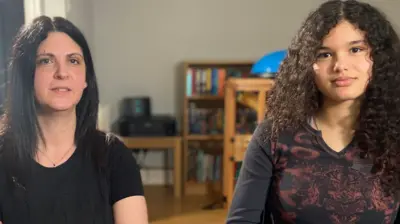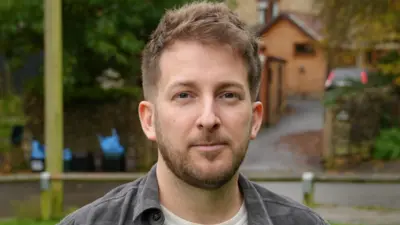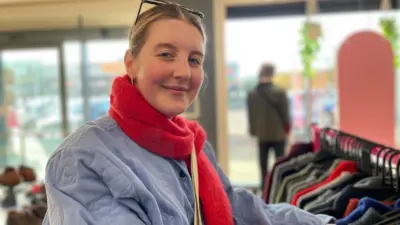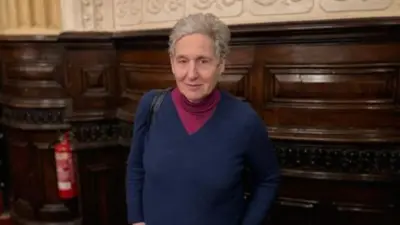We've updated our Privacy and Cookies Policy
We've made some important changes to our Privacy and Cookies Policy and we want you to know what this means for you and your data.
Infamous killer makes bid to be freed from prison
Image source, South Wales Police/PA Media
- Author, Ben Frampton
- Role, ┤¾¤¾┤½├¢ News
A murderer at the centre of one of Wales' most notorious killings will make his case to be freed from prison later.
Lynette White was stabbed more than 50 times and had her throat slit in a Cardiff docklands flat on Valentine's Day 1988, but Jeffrey Gafoor, 59, was not jailed until 2003.
Instead, in 1990, Stephen Miller, Yusef Abdullahi and Tony Paris were jailed for life for the 20-year-old's murder in what was deemed to be a gross miscarriage of justice.
Thursday's parole hearing - which will be held in private - will be Gafoor's sixth, but the decision may not be made for up to 14 days.
Three applications for this hearing to be public were refused, with the parole board saying it was "not appropriate" as it would be assessing "current risk".
John Actie, one of five men who wrongly spent time in prison for the killing, said it should "definitely" be public.
When he was jailed in 2003, Gafoor was ordered to serve a minimum of 13 years after confessing to stabbing Ms White - a sex worker - in a row over £30.
After Ms White's murder, detectives investigating the case said they were hunting a white suspect.
Instead, five black and mixed-race men were arrested and charged with murder before their convictions were quashed by the Court of Appeal.
Gafoor was not caught until there were advances in DNA technology.
Image source, Media Wales
In the wake of Gafoor being jailed, eight South Wales Police officers who investigated Ms White's murder went on trial after being charged with perverting the course of justice.
Their trial collapsed in December 2011 after files relating to complaints by an original defendant were said to have been destroyed.
But the following month, those files were found and were still in the possession of South Wales Police.
An independent review led by Richard Horwell QC, published in July 2017, concluded that: "It is human failings that brought about the collapse of the trial, not wickedness."
When are parole hearings held in public?
Victims, prisoners, members of the public and the media have all been able to apply for public parole hearings after changes in the law in 2022.
In deciding whether to grant a public hearing, the parole board takes into account the wishes of the victims, any risk of trauma to the victims or their families, any risks of safety to the prisoner and whether witness evidence would be affected.
Top Stories
More to explore
Most read
Content is not available








